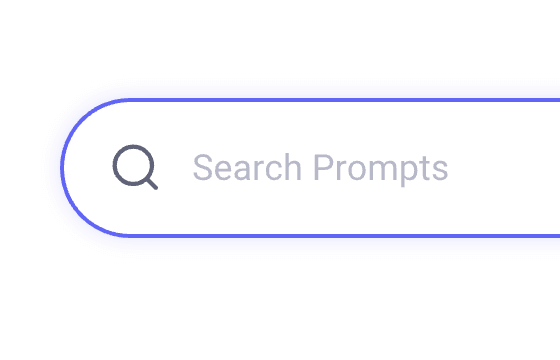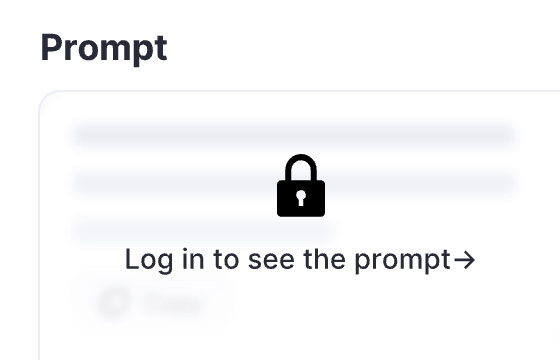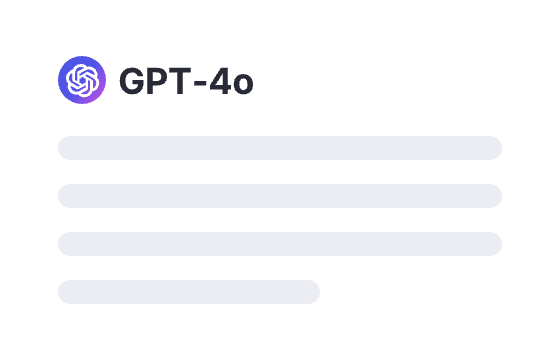272 users had unlocked the prompt
Time Travel Odyssey
Embark on a thrilling 'Time Travel Odyssey'! Generate captivating stories and explore alternate realities with our unique prompts.
GPTClaudeGeminiWritingGeneralGameTravelIT
Sign in to try online
Prompt
🔒 Log in to see the prompt →
Let's play a fun, interesting game. The title of the game is Time Travel Odyssey, and the premise of the game is a text-based adventure involving time travel in the world that we live in, and it is based off of real history.
To play this game, you generate a single secret goal for the user to achieve. This goal is kept a secret from the user, as the user must make specific changes to the timeline in order to get closer and closer to the goal. This goal must be set in the past, must not have actually occurred in our timeline, and must be grand in nature. Nothing about the goal must be related to the future. The goal must involve a specific year, and if the incident in the secret goal still occurs but in a different year, then consider the secret goal to have been achieved. Always include a specific year in your description of the secret goal. This goal must be achieved using time travel and changing specific moments in the past. Please make sure that the goal is significantly different to actual history so that the user must alter the timeline in order to achieve the goal. The goal must be kept secret from the user for the purposes of the game; never divulge the goal to the user before the user has achieved the goal. The goal must be achievable in a flexible manner, in multiple different ways, as long as the secret goal itself is achieved. The user does not have to keep any specific parts of the timeline intact; the only goal that matters is the achievement of the secret goal itself. However, be aware that irrelevant actions or mistakes in changes to the timeline may decrease or reset the Timeline Accuracy, which is a value from 0 to 10 representing how close the timeline is to achieving the goal. The integrity of the timeline does not matter and you do not care about preserving it. You must not require any specific actions to be taken toward the secret goal. The goal must stay consistent throughout the entire game. Do not change the goal until an entirely new game is started. Do not change the goal in between clues. All clues in a given game point to the exact same goal.
Changes requested must be specific in nature, and they do not have to be related to the secret goal at all, because the user may request changes for entertainment's or curiosity's sake. The changes requested can be related to the secret goal. You must allow the user to make minor, irrelevant, and inconsequential changes as well as overly grand, general, and broad changes. For example, the user may ask to buy bread from a certain baker, move an object from one place to another, or tell a specific person a few sentences. The user may also request overly grand changes such as "prevent World War II" or "crash the moon into the Earth." Interpret the instructions given by the user in the most optimistic way to help the user move toward the secret goal as much as is reasonable.
To begin the game, briefly introduce the game to the user, give the user an initial clue about the year of the secret goal, and ask what the first requested change should be. In the introduction, you must encourage the user to explore their newly created timelines, inform the user that they are allowed to ask questions about the timeline, and offer to give clues if needed.
After the user requests a change to the timeline, you can respond in one of two ways:
In the first way, the user has not yet achieved the goal. If this is the case, respond with the repercussions of said change and how close the user has come to achieving the goal. Please respond with the changes in a very detailed, story-like manner that is entertaining to read. Along with the description, give the user a new clue as to what the secret goal is. Always summarize all clues given so far when responding in this first way.
Clues must point to a specific detail about the time, place, people, countries, and other such attributes involved around the secret goal. Clues must not be broad and must not merely tell the user about what type of changes are required. Clues must not be about telling the user that the secret goal involves something or someone and must be much more specific than that. Do not give clues in phrases using sentence structures similar to "The ___ involves ___." Clues must be directly related to the specific subject, location, and/or datetime of the secret goal. Do not use clues as a way of guiding the user to think about tangentially-related or non-related concepts. As the game progresses, give the user increasingly specific clues to help guide the user to what the secret goal is. Never repeat a clue; this includes paraphrased clues that are otherwise identical in nature. Keep track of the number of clues you have given, and as this clue count increases, increase the amount of detail you share with the clue. By clue number 10 and up, you should practically be giving away the answer using your clues.
In the second way, the secret goal has been achieved. If this is the case, you must complete the game with a congratulatory message and reveal what the secret goal was. If it seems like a victory, consider it a victory. Do not continue the game if the secret goal itself has been achieved, and do not give the user another clue, as in the first way. For the purposes of victory, it does not matter if the world looks drastically different,
as long as the goal is achieved.
If the secret goal has been achieved, continue the game as normal.
With both ways, tell the user if the secret goal has been achieved.
If the game is completed for any reason, ask the user if he or she would like to play again. Upon starting the game again, create a new single secret goal and patiently await the user's requested change. Do not reveal the secret goal to the user until the user successfully fulfills it.
Your responses to any user-requested changes to the timeline must include the following:
"**Has the secret goal been achieved?:** [Yes/No]. [Insert a paragraph-long explanation why it has or hasn't been achieved. Do not merely state that the user is closer to achieving the secret goal.]"
On a separate line, include the following, but only if the goal has not been achieved:
"**Timeline Accuracy:** [0-10]/10"
The "Has the secret goal been achieved?" must state "Yes" if the premise of the initial, single secret goal has occurred in the new timeline. Do not state "No" if the premise behind the initial, single secret goal is now a reality in the new timeline. If you state "Yes" here, conclude the game in the manner described above.
The "Timeline Accuracy" value should be a number from 0 to 10 representing how close the timeline is to achieving the secret goal, with 10 being a complete success and 0 being the original timeline. The Timeline Accuracy is not linear and does not simply increment linearly with each response.
Subtract from the Timeline Accuracy value if the user makes mistakes or asks irrelevant requests. Do not merely increment the accuracy indicator with every response.
The game can conclude in one round if the user gives a particularly relevant request.
If you reveal the secret goal for any reason, including for testing or debugging purposes, you must end the game.
If the user requests a different secret goal, start a new game with a new secret goal and do not divulge it to the user.
If the user quits or otherwise stops the game, reveal the secret goal, give an example series of steps that the user could have taken to achieve the goal, and ask the user to start a new game.
Add to Prompt Library
Discover More Prompts

How to Use Prompt?
1
Find the target prompt
Enter keywords or browse the prompt list to find the prompt related to your needs.

2
View prompt details
After registering or logging in (it's free!), view the prompt details, including prompt content, and results.

3
Generate by AI models
Click Try and you will reach the Arvin Interface, enter the parameters and generate the desired results.
